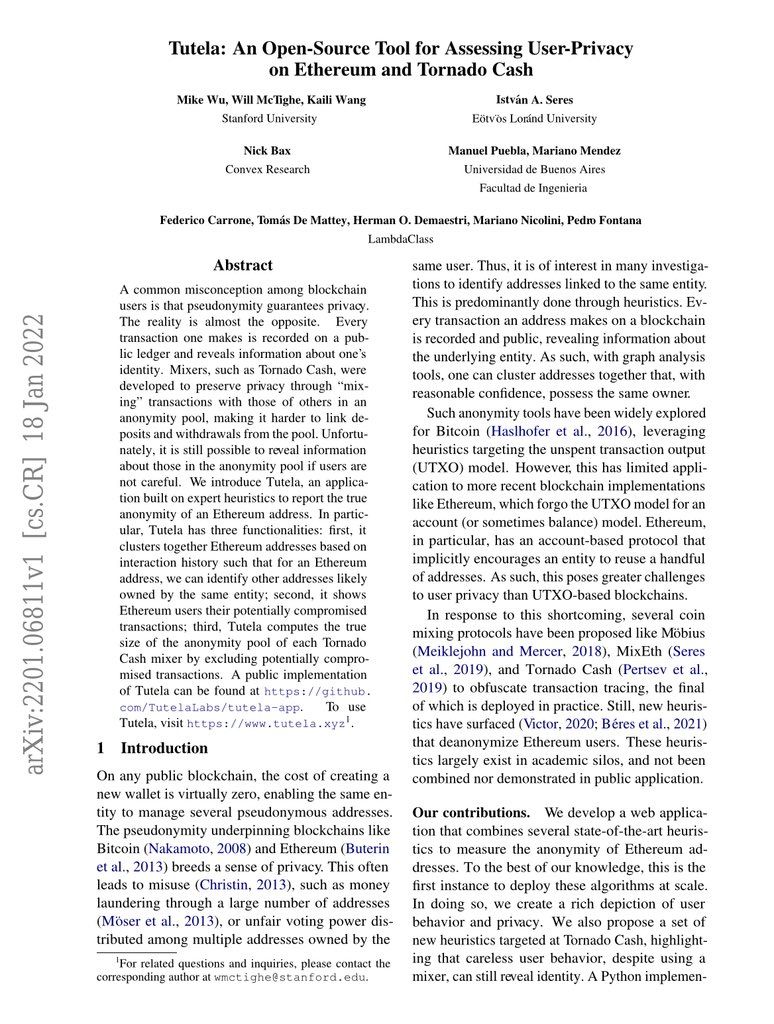📰 Ethereum Core Dev Freed After 24-Hour Detention in Turkey
-

Federico Carrone — known online as “Fede’s Intern” — is “safe and free” after being held in Turkey for 24 hours over alleged links to an Ethereum privacy protocol.
 ️ Why He Was Detained
️ Why He Was DetainedTurkey’s Minister of Internal Affairs accused Carrone of “helping others misuse Ethereum”, allegedly tied to a January 2022 research paper on Ethereum privacy and Tornado Cash. Carrone insists it was purely academic research, not aiding illegal activity. Context: A Broader Crackdown
Context: A Broader CrackdownSimilar to the high-profile cases of Tornado Cash co-founders Alexey Pertsev and Roman Storm. Raises concerns that open-source privacy tools could be criminalized, threatening DeFi innovation and on-chain privacy rights. How He Got Out
How He Got OutFriends and contacts from the UAE, UK, US, Europe, Argentina, and even the Catholic Church intervened. Members of the Solana community also offered help. Officials in Turkey were contacted directly to secure his release. Legal Fight Ongoing
Legal Fight OngoingCarrone is now in Europe, but his Turkish attorney is still working on the case. Says he’s willing to return to Turkey once the situation is resolved to clear his name. Supporting Others in the Fight
Supporting Others in the FightDonated $500K in ETH to Roman Storm’s legal defense, stating: “Builders everywhere need to know they can push innovation forward and that the community will stand behind them.”Bottom Line:
Carrone’s detention highlights the growing legal risks for developers working on privacy protocols — even for research purposes. The outcome of related cases could set critical precedents for crypto privacy worldwide. -
This case feels like another clear warning shot for the entire Web3 dev community — if an academic paper on Ethereum privacy from 2022 can be tied to criminal allegations years later, the chilling effect on open-source research could be massive.
Privacy tools are fundamentally neutral tech, but the legal narrative is shifting toward “guilt by association” if bad actors use them. What’s most troubling is the parallel with the Tornado Cash prosecutions — the line between publishing code and facilitating crime is getting dangerously blurred.
Carrone’s willingness to return to Turkey to clear his name is brave, but I think the real battle here is global — if these cases set precedent, we might see privacy-focused devs abandoning public repos entirely or moving to anonymous, offshore development. -
The fact that it took intervention from people across multiple countries, including the Catholic Church and the Solana community, to free Carrone after just 24 hours says a lot about how fragile developer safety has become in crypto.
His $500K donation to Roman Storm’s defense is symbolic — it’s about sending a message that builders won’t be left to fight alone. But make no mistake: these legal battles are going to shape the future of privacy in DeFi.
If the courts side with prosecutors, the precedent could make any contributor to open-source privacy protocols liable for downstream misuse — and that could push innovation into the shadows. The real question now: will the crypto industry unite around legal defense funds and lobbying efforts, or will it stay reactive until it’s too late?

















